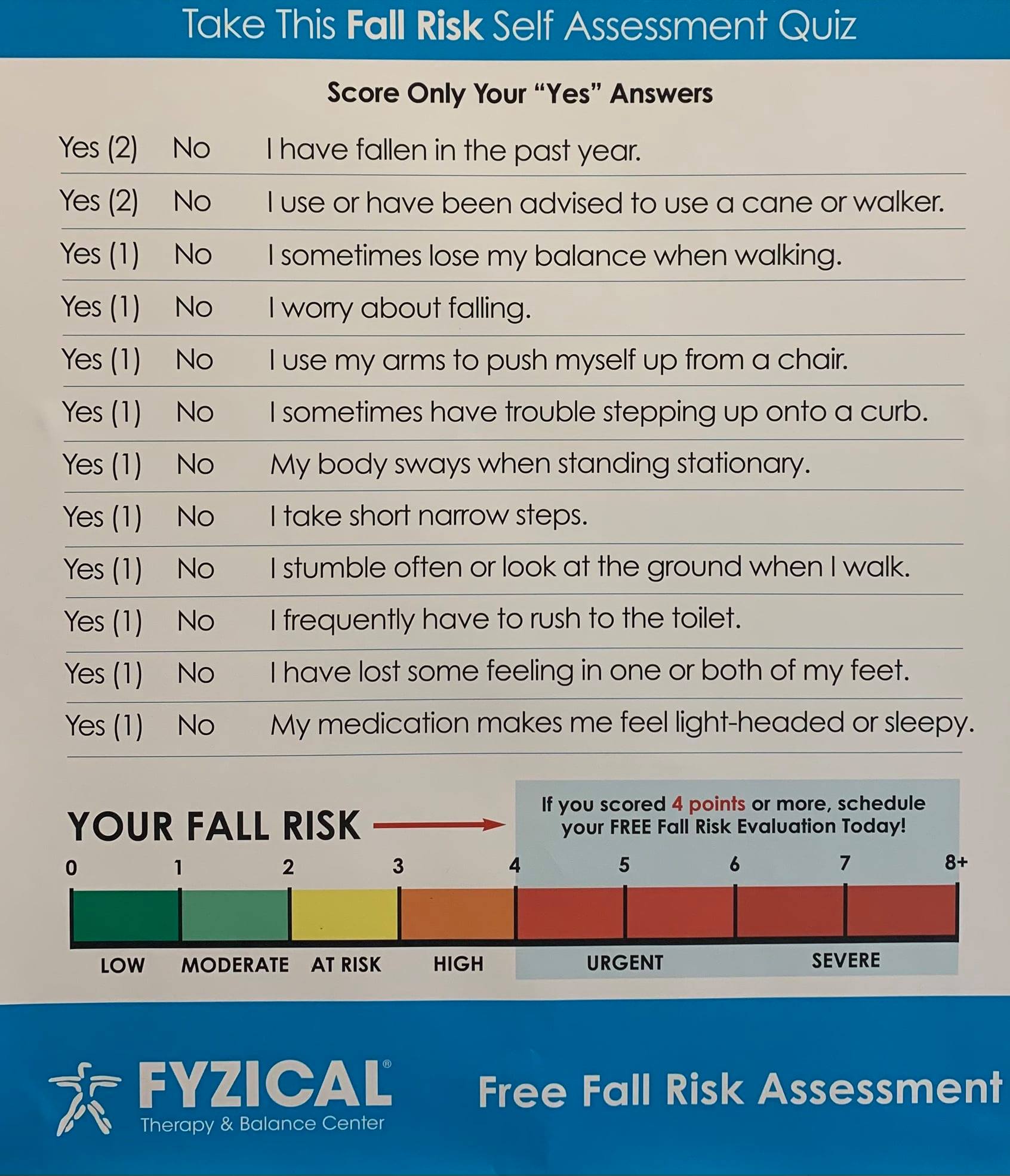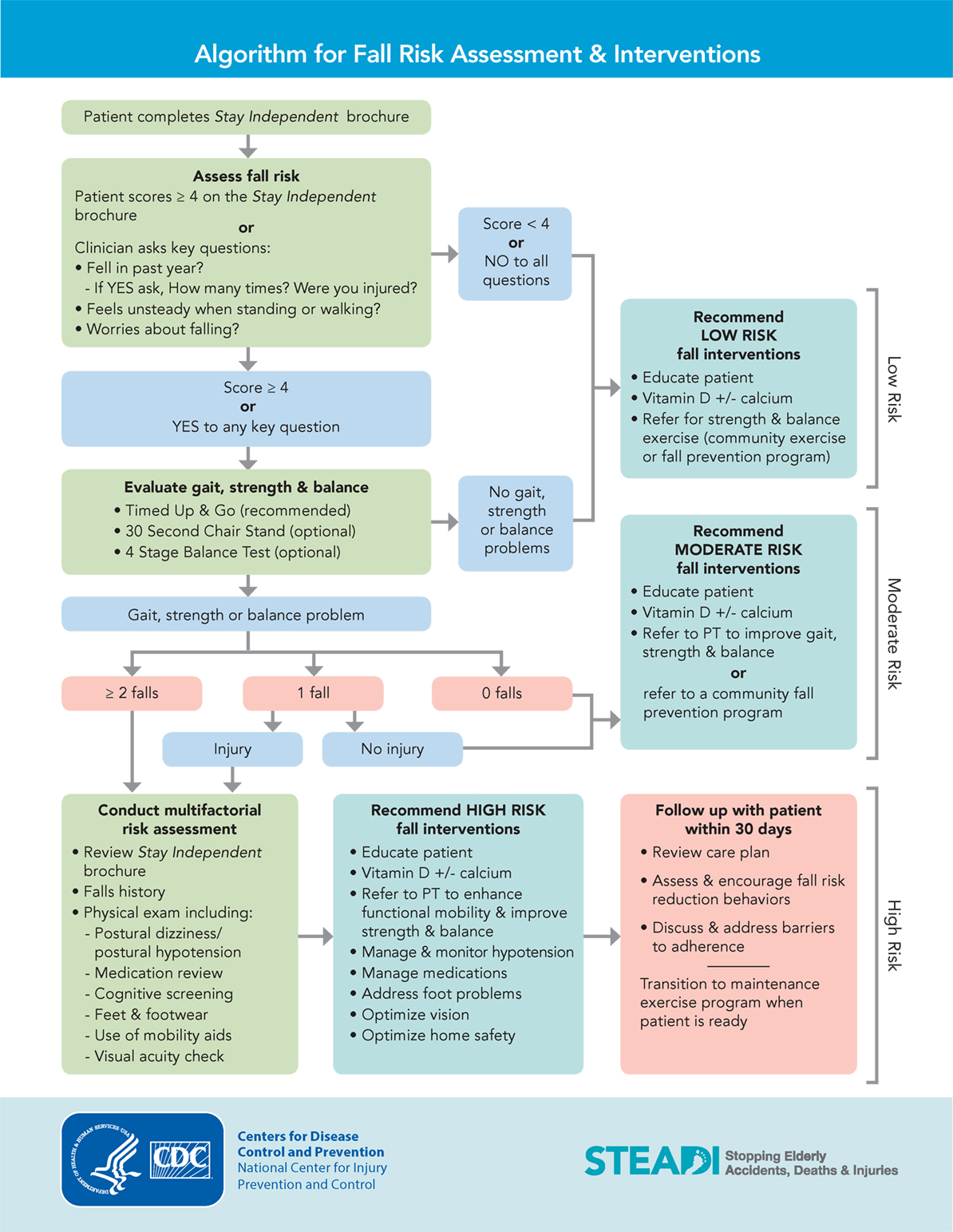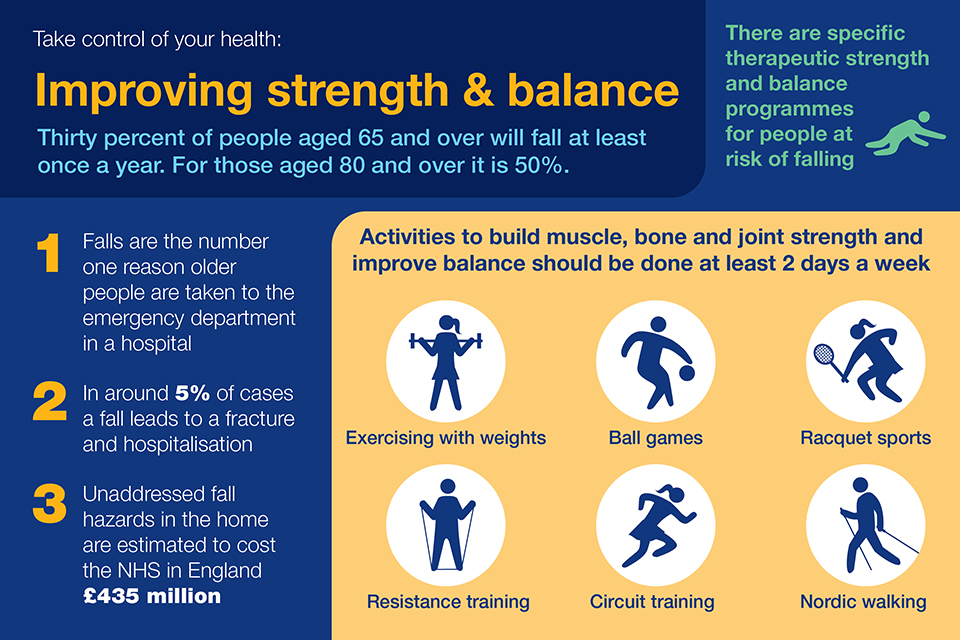The Ultimate Guide To Dementia Fall Risk
Table of Contents7 Simple Techniques For Dementia Fall RiskThe 6-Minute Rule for Dementia Fall Risk8 Simple Techniques For Dementia Fall RiskThe smart Trick of Dementia Fall Risk That Nobody is DiscussingSome Known Details About Dementia Fall Risk
Make sure that there is a marked location in your medical charting system where personnel can document/reference scores and record appropriate notes connected to drop avoidance. The Johns Hopkins Loss Danger Evaluation Device is one of many tools your personnel can utilize to assist prevent unfavorable clinical events.Person falls in hospitals are usual and debilitating unfavorable events that continue regardless of decades of effort to reduce them. Improving interaction across the examining registered nurse, care team, client, and patient's most involved buddies and family may strengthen fall prevention initiatives. A group at Brigham and Women's Hospital in Boston, Massachusetts, looked for to establish a standard autumn avoidance program that focused around improved interaction and client and family engagement.

The innovation group highlighted that successful execution relies on individual and staff buy-in, integration of the program into existing operations, and integrity to program procedures. The team kept in mind that they are coming to grips with how to ensure connection in program execution during durations of crisis. During the COVID-19 pandemic, for instance, a boost in inpatient drops was related to constraints in individual interaction along with constraints on visitation.
The Single Strategy To Use For Dementia Fall Risk
These cases are generally thought about avoidable. To carry out the treatment, companies need the following: Access to Autumn ideas sources Fall TIPS training and retraining for nursing and non-nursing team, consisting of brand-new registered nurses Nursing operations that permit person and family members involvement to conduct the falls assessment, ensure usage of the avoidance strategy, and carry out patient-level audits.
The results can be highly harmful, typically increasing client decline and creating longer hospital stays. One research study approximated keeps enhanced an additional 12 in-patient days after a client fall. The Fall TIPS Program is based upon engaging patients and their family/loved ones across three major procedures: assessment, individualized preventative treatments, and bookkeeping to guarantee that patients are involved in the three-step autumn prevention procedure.
The client assessment is based upon the Morse Fall Range, which is a verified fall threat assessment device for in-patient healthcare facility settings. The range includes the 6 most common factors clients in medical facilities fall: the person autumn background, high-risk problems (including polypharmacy), usage of IVs and other my link exterior devices, psychological status, stride, and mobility.
Each danger factor web links with several actionable evidence-based treatments. The nurse produces a strategy that integrates the treatments and shows up to the treatment group, client, and family members on a laminated poster or printed visual help. Registered nurses establish the strategy while meeting the individual and the person's family.
Facts About Dementia Fall Risk Revealed
The poster functions as an interaction device with other members of the client's care team. Dementia Fall Risk. The audit component of the program includes assessing the patient's knowledge of their threat variables and avoidance strategy at the system and healthcare facility levels. Nurse champions conduct at the very least five individual interviews a month with people and their family members to look for understanding of the autumn prevention plan

An approximated 30% of these falls lead to injuries, which can range in extent. Unlike various other negative events that require a standard professional action, autumn prevention depends very on the demands of the individual. Including the input of individuals that know the patient ideal permits greater customization. This strategy has shown to be more reliable than autumn prevention programs that are based largely on the production of a risk rating and/or are not customizable.
Our Dementia Fall Risk Statements

Based on bookkeeping results, one site had 86% conformity and two sites had more than 95% compliance. A cost-benefit analysis of the Loss TIPS program in eight health centers estimated that the program expense $0.88 per patient to execute and caused savings of $8,500 per 1000 patient-days in direct prices associated with the prevention of 567 drops over 3 years and 8 months.
According to the development group, companies interested in executing the program must perform a readiness assessment and falls prevention voids evaluation. 8 In addition, Home Page organizations ought to make sure the needed framework and workflows for implementation and develop an application plan. If one exists, the company's Autumn Avoidance Job Pressure need to be associated with preparation.
Some Known Facts About Dementia Fall Risk.
To start, companies ought to guarantee completion of training modules by registered nurses and nursing aides - Dementia Fall Risk. Healthcare facility personnel need to assess, based upon the requirements of a health center, whether to make use of a digital wellness record printout or paper variation of the autumn prevention strategy. Applying teams should hire and train nurse champs and establish procedures for bookkeeping and reporting on loss data
Staff require to be associated with the process of revamping the workflow to involve individuals and family in the analysis and prevention strategy process. Equipment must be in area so that devices can comprehend why a fall happened and remediate the cause. Extra particularly, nurses must have channels to supply ongoing comments to both staff and system management so they can change and boost fall avoidance workflows and connect systemic issues.